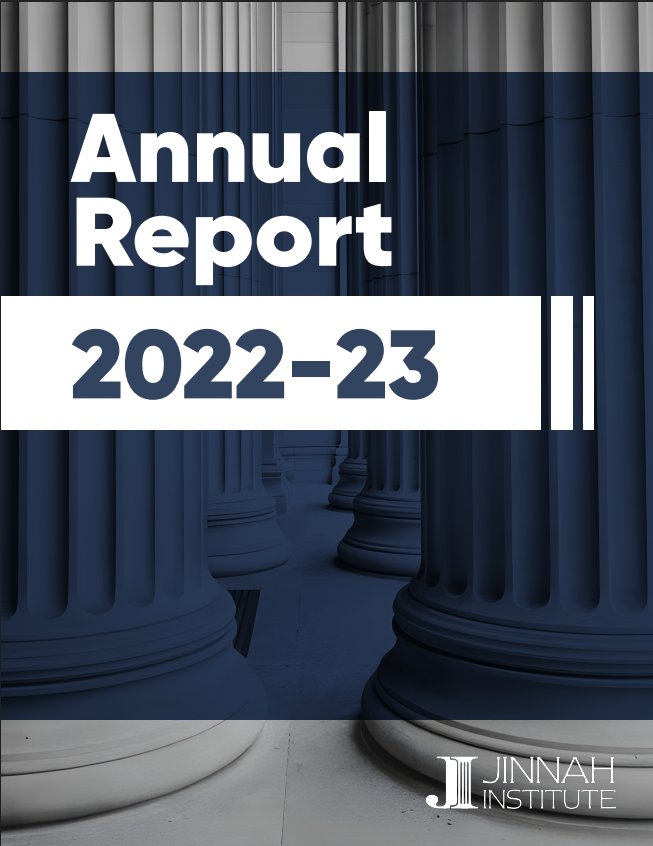Annual Report (2022-2023)
by: Jinnah Institute
Date: June 30, 2025
Amid cascading climate shocks and deepening political polarization, Jinnah Institute’s 2022–2023 programming focused on resilience, regional stability, and democratic equity. Policy roundtables addressed Building Resilience Amidst a Poly Crisis, Minority Representation in Pakistan, and the Status of Afghan Refugees and Migrants, while India–Pakistan Track-II engagements were convened under the Chao Track in Bangkok. The national conference Road to Resilience: What is Pakistan’s Capacity and Commitment? brought together policymakers, climate experts, and civil society voices ahead of COP27 to assess Pakistan’s adaptation trajectory. University townhalls in Islamabad, Lahore, and Karachi explored climate equity, digital polarization, and post-disaster exclusion. The Institute’s op-ed The Season of Climate Migrants spotlighted rising displacement risks linked to climate stress. The Flashpoint series featured expert perspectives on the SCO Summit and the killing of Ayman al-Zawahiri. A joint forum with the NESA Center convened academics and national security practitioners to assess Pakistan’s evolving strategic landscape. The year marked a deepening of JI’s commitment to inclusive, rights-based, and adaptive policymaking.

